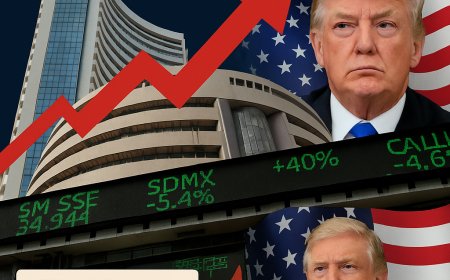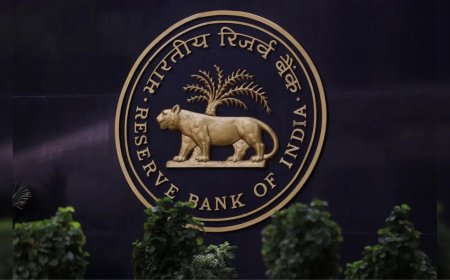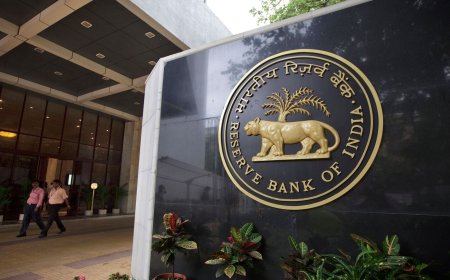Japan faces an era-defining reset with the US
Japan embarks on a strategic reset in its relationship with the U.S., driven by regional security concerns, economic cooperation, and shifting global alliances. Experts weigh in on what this means for markets and investors.

Japan is undergoing a historic reset in its relationship with the United States, as Tokyo recalibrates its defense posture, economic priorities, and geopolitical alignment. With growing tensions in the Indo-Pacific, particularly concerning China’s assertiveness and North Korea’s provocations, the Japanese government under Prime Minister Fumio Kishida is forging a deeper, more versatile alliance with Washington—marking what analysts are calling an “era-defining” pivot.
This shift is not merely rhetorical; it includes substantial defense reforms, enhanced economic security partnerships, and greater alignment on critical technologies like semiconductors and artificial intelligence. The transformation underscores Japan’s willingness to adopt a proactive role in global affairs—one that could redefine East Asian security and supply chain dynamics for decades.
Security Cooperation: Tokyo Steps Up
Central to this reset is Japan’s unprecedented rearmament under its 2022 National Security Strategy, which marked a break from decades of postwar pacifism. Japan plans to double its defense spending by 2027 to 2% of GDP—placing it among the world’s top five military spenders.
Last month’s high-level talks in Washington between PM Kishida and President Biden reinforced commitments to expand joint military exercises, integrate defense technologies, and strengthen deterrence across the first island chain.
“This is no longer just a military alliance—it’s a comprehensive strategic partnership,” said Dr. Sheila Smith, senior fellow for Japan studies at the Council on Foreign Relations. “Japan is taking a more assertive role to shape the regional order.”
Japan also joined the U.S.-led AUKUS talks in April as a potential technology partner—signaling deeper involvement in multilateral defense frameworks.
Economic Dimensions: Beyond Trade
Japan’s reset is not confined to defense. Tokyo is seeking greater resilience in economic ties with the U.S., especially amid concerns about global supply chains and overdependence on China.
The two countries recently launched the U.S.-Japan Economic Policy Consultative Committee, which aims to fortify cooperation in semiconductors, battery production, rare earths, and critical infrastructure. This includes a $1.8 billion public-private investment in next-generation chip production, involving Japanese firm Rapidus and U.S.-based IBM.
“Economic security is national security,” noted Kazuto Suzuki, professor at the University of Tokyo. “Japan understands that its future lies in co-developing secure and advanced tech ecosystems with trusted partners like the U.S.”
The Biden administration’s push for “friendshoring” has found fertile ground in Japan, where corporate leaders are aligning more closely with American industrial and technological policy agendas.
Shared Concerns Over China
At the heart of this reorientation is the shared concern over China’s growing assertiveness, both militarily and economically. Beijing’s continued pressure on Taiwan and expansive territorial claims in the South and East China Seas have alarmed Tokyo, prompting a shift from its traditionally cautious stance.
Japan has repeatedly stated that “peace and stability across the Taiwan Strait is indispensable,” echoing U.S. policy language. Meanwhile, economic coercion by China—such as trade restrictions on rare earths—has pushed Tokyo and Washington to deepen resilience initiatives.
“This is a strategic inflection point,” said Bonnie Glaser, managing director at the Indo-Pacific program of the German Marshall Fund. “The Japan-U.S. alliance now has a China-centric urgency that is unmistakable.”
Technology and Innovation: A Strategic Frontier
Technology is emerging as a crucial arena in the new alliance architecture. The two countries have launched joint initiatives on AI safety, cybersecurity, and quantum computing—areas seen as essential to preserving democratic values in digital governance.
Japan’s role as a technology hub, with deep expertise in materials science and robotics, complements U.S. strength in AI and advanced semiconductors. This convergence could also serve as a counterweight to China's rapid tech development.
A trilateral meeting in Silicon Valley between Japanese, American, and South Korean tech leaders in June resulted in a shared roadmap for semiconductor collaboration—a move hailed by markets.
Investor Outlook: Cautious Optimism with a Strategic Bias
Investors are watching the Japan-U.S. reset with cautious optimism. Japanese defense stocks—such as Mitsubishi Heavy Industries and IHI Corporation—have seen renewed interest amid higher defense spending. Meanwhile, chip-sector firms, including Tokyo Electron and Advantest, are seen as key beneficiaries of the new tech-industrial partnership.
“Markets are starting to price in a longer-term strategic realignment that could boost innovation and investment in Japan,” said Hiroshi Watanabe, equity strategist at Nomura Securities. “But geopolitical risks also remain elevated.”
The Tokyo Stock Exchange’s broader reform efforts and yen weakness continue to attract foreign capital inflows. As of June, net foreign purchases of Japanese equities reached a four-month high, according to data from Japan Exchange Group.
A New Chapter with Global Implications
Japan’s era-defining reset with the U.S. signals the dawn of a new phase in international relations—where security, economic resilience, and technological sovereignty intersect. While the transformation is still unfolding, its trajectory points to a more confident and globally integrated Japan, prepared to lead in shaping the rules of a multipolar Indo-Pacific.
For investors and policymakers alike, this recalibration offers opportunities and risks in equal measure—demanding a nuanced understanding of not just economic indicators, but also geopolitical strategy.
What's Your Reaction?
 Like
0
Like
0
 Dislike
0
Dislike
0
 Love
0
Love
0
 Funny
0
Funny
0
 Angry
0
Angry
0
 Sad
0
Sad
0
 Wow
0
Wow
0












































































